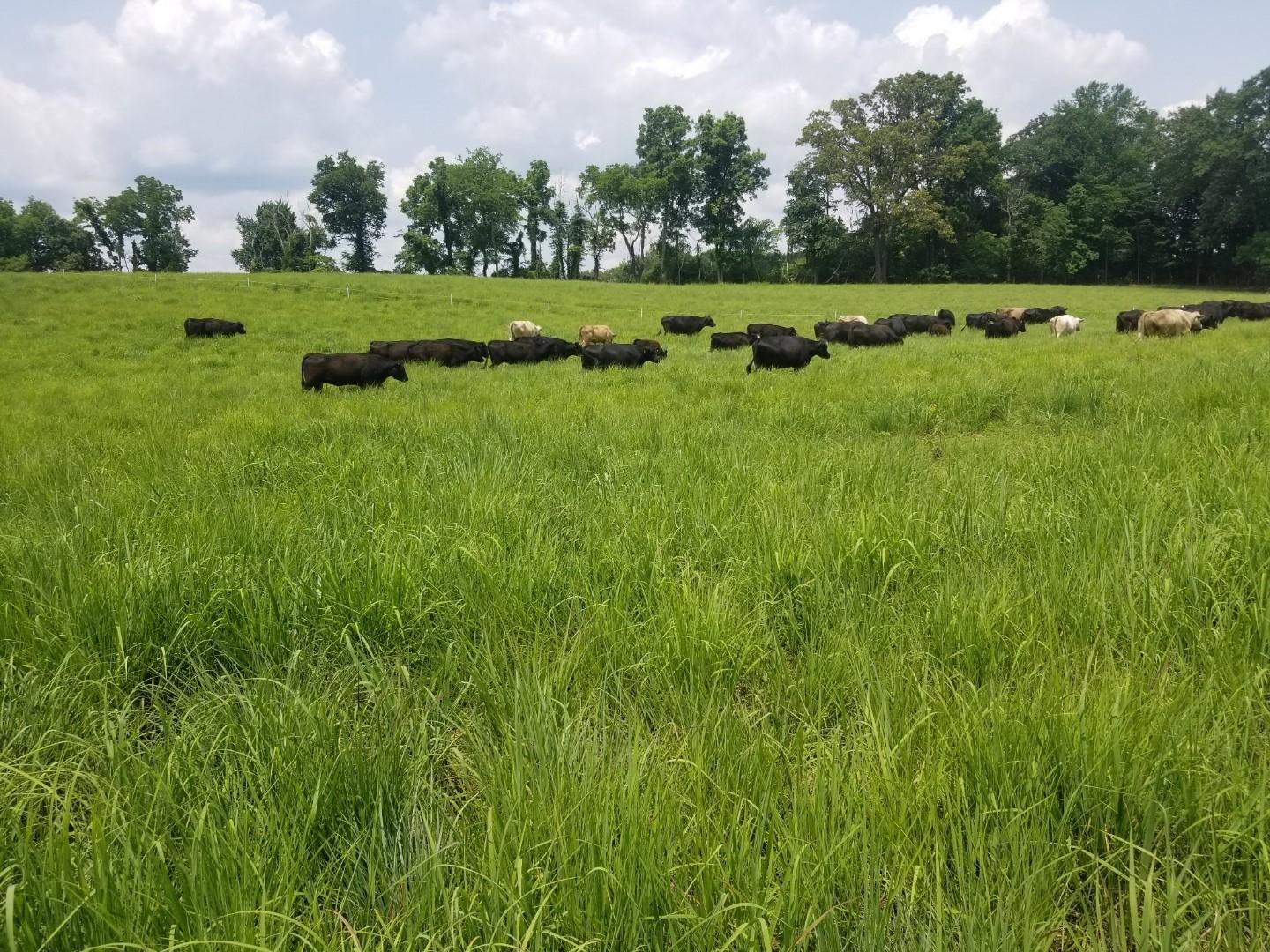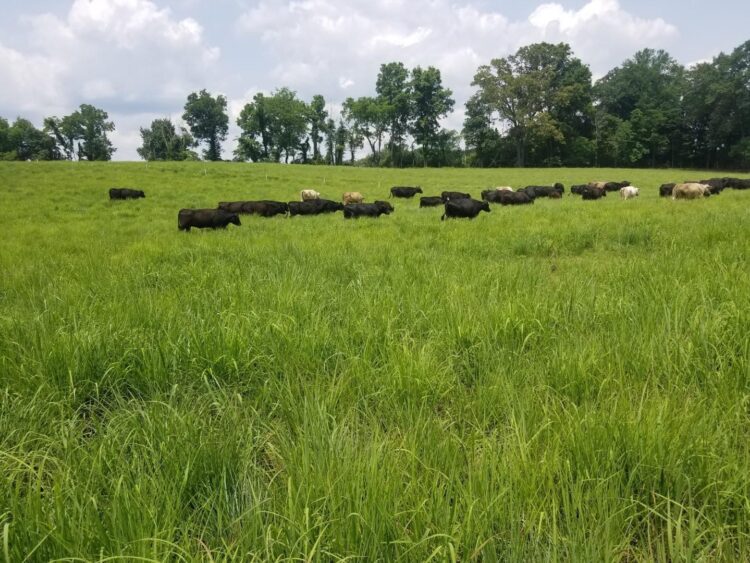NIFA grant should improve productivity, sustainability and resiliency of grassland agroecosystems

Credit: Photo by Rebekah Norman, UT Extension agent and county director, Montgomery County, Tennessee.
KNOXVILLE, Tenn. — Researchers at the University of Tennessee Institute of Agriculture have been awarded nearly $500,000 from the USDA National Institute of Food and Agriculture to improve productivity, resiliency and overall health of eastern grasslands. While grasslands comprise the largest agricultural land use in the U.S., there is room to improve their productivity and ability to remain vigorous during drought and heat. Pat Keyser, a professor of forestry, wildlife and fisheries who also directs the UTIA Center for Native Grasslands Management, and his colleagues are seeking to change the overall health of these ecosystems by studying novel grassland systems across the eastern U.S.
The problem lies with tall fescue, Schedonorus arundinaceus. This species of grass is a go-to candidate for many farmers and ranchers who need to provide forage for cattle. Native to Europe, tall fescue is a cool-season grass that experiences what many producers call a “summer slump.” During hot months growth slows a great deal, and productivity is limited. When the grass cannot replenish itself enough to keep up with grazing pressure, it becomes overgrazed and stressed. Pastures become degraded as root systems are weakened.
Additionally, tall fescue contains a fungal endophyte that produces toxins that can cause a myriad of health problems when consumed by cattle or other livestock. Common issues include weight fluctuations, digestive and reproductive problems and reduced milk production.
Through the grant, Keyser and his colleagues will implement large-scale field experiments at three locations: the UT East Tennessee AgResearch and Education Center in Knoxville, Tennessee; the University of Missouri’s Forage Systems Research Center in Linneus, Missouri; and the Dale Bumpers Small Farms Research Center in Booneville, Arkansas. Each site will host tall fescue as well as native warm-season grasses: big bluestem and indiangrass blends or eastern gamagrass. The systems will then be evaluated to determine how those with warm-season grasses compare to the traditional, tall fescue-only system. In particular, the researchers will evaluate productivity, profitability, sustainability, animal health and ecosystem health.
Keyser says, “Innovation has been the life-blood of modern agriculture. This research explores a major opportunity to innovate our approach to managing eastern grasslands for cattle production. While producing more pounds of beef at a lower cost is a key measure of success, we also want to evaluate how this innovation can affect soil health, water quality, really, all of our natural resources.”
Over the three-year grant period, the researchers hypothesize that the novel grazing systems will improve beef production, soil and water quality and overall process sustainability.
The UT Department of Forestry, Wildlife and Fisheries is part of the Herbert College of Agriculture, UT AgResearch and UT Extension at the UT Institute of Agriculture. The curricula focus on a mastery learning approach, emphasizing practical, hands-on experiences. FWF’s faculty, staff and students conduct research and extension that advances the science and sustainable management of our natural resources. For more information, visit fwf.tennessee.edu.
Through its land-grant mission of research, teaching and extension, the University of Tennessee Institute of Agriculture touches lives and provides Real. Life. Solutions. utia.tennessee.edu.
Media Contact
Patricia McDaniels
[email protected]
Original Source
https:/





